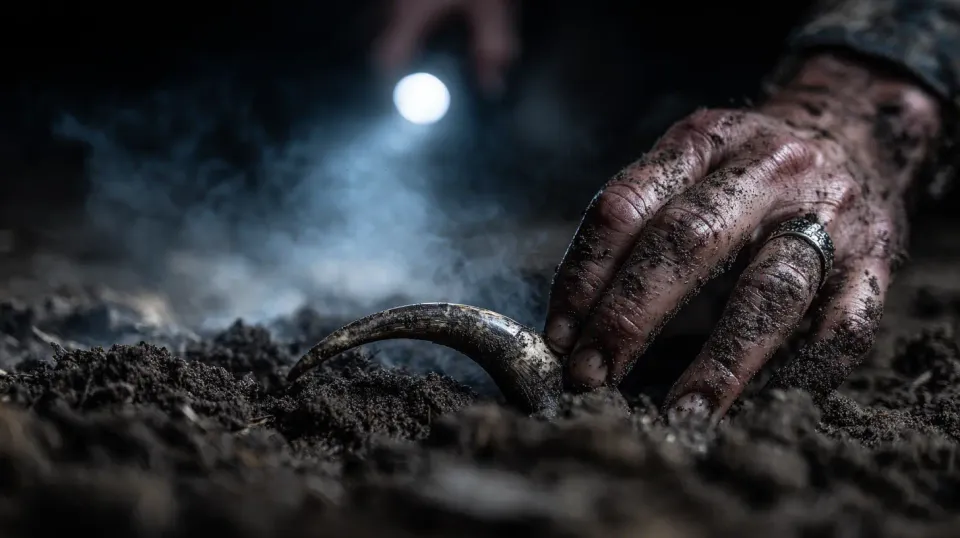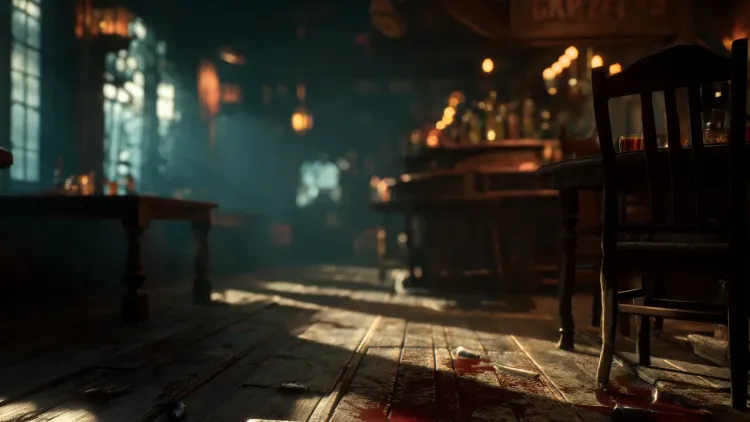The Cosmic Vinyard

Premise
Biodynamic agriculture treats the farm as a living organism tied to cosmic forces. Each autumn, farmers bury cow horns packed with manure, then unearth them at spring equinox. The contents, now dark humus, are stirred into water—spiraled clockwise, then counterclockwise—and sprayed at dawn.
Rudolf Steiner devised the method in 1924, claiming it channels celestial energy. Scientists dismiss the preparations as too dilute to matter, no different from organics. Yet every year the horns go in, the humus comes out, the spirals collapse and reform in the dark. Farmers spray their fields and wait.
◇ ◇ ◇
Case
Ruth pressed her palm against the nearest vine. Another season of grapes that would barely make grocery store wine.
"Five years, Thomas." She pulled the folded printout from her pocket. "Château Bellefontaine was failing too. Then they switched to biodynamic agriculture."
Thomas took the article, squinting at photos of perfect grape clusters. "Buried cow horns filled with manure? Ruth, this sounds insane."
"More insane than losing everything?"
Thomas folded the paper, scanning their ten acres. Each stalk looked worse than the last—leaves yellowing, grapes shriveling before they could ripen.
"What exactly would we need to do?"
The box arrived three weeks later. Ruth lifted out the first horn, running her fingers along its smooth surface. Ten cow horns, each to be packed with fresh cow manure.
The horns sat on the kitchen table for a week. By the time the calendar told them it was time, Thomas was almost relieved.
"Moon descending in Capricorn," Thomas read from the calendar they'd tacked to the kitchen wall. "Tomorrow at dusk."
They worked by flashlight in the southeastern corner, digging eighteen inches down in each acre. The October soil clung to their hands as they placed each horn carefully, tips pointing upward.
Ruth tamped the last shovelful of earth. Something shifted—not the soil, but the air itself. Like static before a storm.
"How long do we leave them?"
"Until spring equinox." She pulled off her gloves. "Then we dig them up, mix with rainwater, spray the whole vineyard."
Walking back to the house, Thomas kept glancing over his shoulder at the burial spots. "Did you feel that? When we covered them?"
"Feel what?"
"Nothing. Just tired."
But Ruth had felt it too. A pulse through the ground, rhythmic.
Through the winter, the calendar filled with notes — sowing days missed, pruning postponed. Thomas kept crossing off weeks until the spring equinox, but Ruth never crossed out the southeastern corner.
The horns emerged in March transformed. What had been manure was now a humus, almost luminous in the morning light.
"Jesus," Thomas whispered. "Look at it."
Ruth scraped the substance into their mixing bucket, added rainwater. She stirred clockwise for thirty minutes, then counterclockwise for thirty. The mixture formed perfect spirals before dissolving into an earthen mixture.
"It's ready."
They walked the rows, misting preparation over dormant branches. Where droplets pooled on the soil, Ruth could swear she heard something—a sigh.
Three days later, Thomas called her to the eastern section.
"Ruth. Look."
Green shoots pushed through the earth where they'd sprayed heaviest. But these weren't grape shoots. The leaves grew in perfect geometric shapes, spiraling outward from thick, fleshy stems.
"Maybe it's part of the process?" Ruth knelt beside one cluster. "The preparation activating dormant seeds?"
Thomas touched a leaf. He jerked his hand back. "It's warm. Feel it."
She pressed her palm against the plant. Not quite a heartbeat. Something else.
"We should pull them," Thomas said.
"No. The calendar says we can't disturb the soil until the next moon phase. We'd disrupt the entire farm organism."
"Farm organism." He shook his head. "Ruth, these aren't normal weeds."
By May, the spiral plants covered half of their vineyard.
"They’re dying faster." Thomas carried a cutting that should have been green with new growth. Instead it looked mummified, brittle as old paper.
Ruth studied it under her magnifying glass. The cellular structure had collapsed, but not from disease. It looked drained.
Every grapevine within three feet of the new plants showed the same decline.
"They're taking something," Thomas said. "From the soil, from the vines, I don't know."
Ruth walked to the largest cluster—a spiral formation nearly three feet high. As she approached, her skin tingled with static. The plants leaned toward her, leaves clinging to her.
"We have to remove them."
"Thomas, look over there." She gestured across their land. "It's not random. They're forming something."
From the hill above their property, the design was unmistakable. Spirals connected through what must be underground root networks, creating a vast mandala across their vineyard.
"It's beautiful," she whispered.
Thomas grabbed her arm. "It's killing everything!"
"Or transforming it. The vineyard is becoming a living organism, just like the biodynamic method promises. Connected to cosmic forces."
"Connected to what cosmic forces, Ruth?"
She didn't answer. Couldn't answer. The plants pulsed in unison now, their rhythm matching her heartbeat. When she breathed, they seemed to breathe with her.
That night, she dreamed of roots spreading beneath their land, reaching down to something that had been listening when they buried those horns under the October moon.
When she woke, Thomas was standing at the window, staring at their vineyard. At dawn, the spiral formations glowed faintly, pulsing in unison.
"Ruth," he said without turning. "What have we done?"
She joined him at the window. The geometric patterns were expanding even as they watched, consuming another row of shoots. But she couldn't look away.
"We made a connection," she said. "Just like we wanted."
Below them, the vineyard lay ruined.
◇ ◇ ◇
Root
A failing vineyard drives Ruth and Thomas to try biodynamic farming. They bury horns of manure, then spray the prepared mixture in spring. Instead of saving their vines, the ritual births spiral plants that drain the grapes and form vast mandalas.
Soil scientists would say the horn makes no difference — humus is humus, whether buried in porcelain or cow horn. But try telling that to a farmer who’s seen drought skip their land three years running. Science calls it coincidence; the occult calls it connection. Ruth calls it beauty, even as the vineyard dies.

